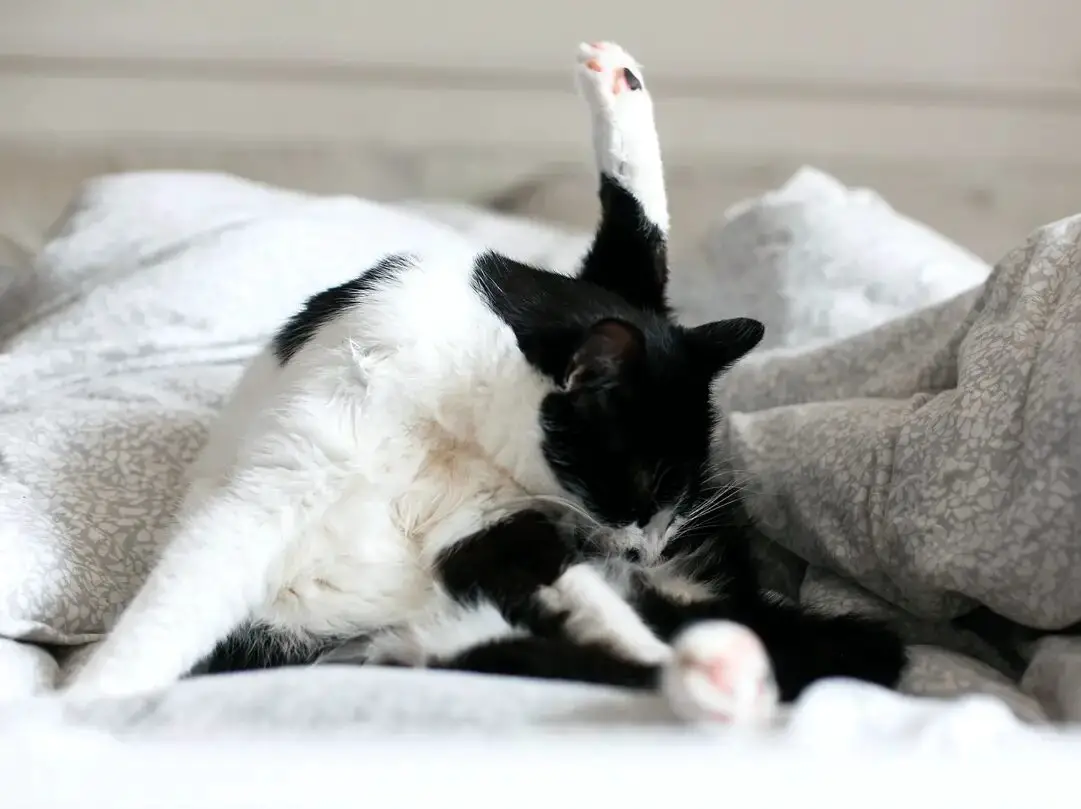Does your cat lick itself constantly? Does your cat have patches of fur missing or hair loss? If so, your cat might be grooming excessively. Here we’ll discuss how to spot signs of excessive grooming, what might be causing your cat to over groom itself and how to stop it.
Signs to look out for
There are several key signs to look out for if you suspect your cat is over-grooming. Be sure to observe your cat and notice:
- Any hair loss or patches of fur missing?
- Is any area of your cat’s skin raw or irritated?
- Are they licking, biting or scratching a particular area of their body obsessively?
If you notice any of these signs, it’s important to schedule a trip to the vet to rule out any health conditions. Excessive self-grooming, also known as hyperesthesia or psychogenic alopecia, can be a sign of anxiety or stress in cats. Now let’s help your cat out!
How to stop excessive grooming in cats
Excessive grooming can be a result of a variety of issues but is commonly associated with skin conditions, underlying health problems and anxiety or stress.
Overgrooming due to a skin condition
Skin conditions can result in constant scratching, licking, biting and overgrooming. Start with a trip to the vet for treatment. In some cases, excessive grooming can be a sign of an underlying health condition. Your veterinarian may prescribe medication or recommend a change in diet. If your veterinarian determines that your cat is healthy, then consider behavioral causes for your cat’s grooming obsession.
Over grooming due to anxiety/stress
If you think excessive grooming is due to anxiety or stress, there are a few things you can do to help your cat and reduce stress where possible. Start by examining your environment. Is it loud and hectic? Does your cat have places to hide if they want? Are there other animals in the home? Has anything changed, like a new house, new baby, new significant other? If so, your cat may be stressed out about the environment.
Start by creating a serene environment for your cat. Be sure your cat has places where they can hide, like a closet or spare bedroom. Keep the noises down. Never punish your cat as this could make the problem worse (and it doesn’t work!) – you’ll just cause more stress and ruin the bond you have with your cat.
In some cases, boredom in cats can cause anxiety and stress. Consider whether or not your cat is bored or suffering from separation anxiety. Make sure they have plenty of toys and play time with you to release pent up energy. Playtime is a great bonding experience for you and your cat.
Grooming is an important part of cats’ lives, but if it becomes excessive, it should be addressed with your veterinarian first. If health issues are ruled out, consider your pet’s mental health and take the necessary step as outlined above to correct the behavior. If your cat is still having issues, consider consulting with a cat behavioral therapist.
